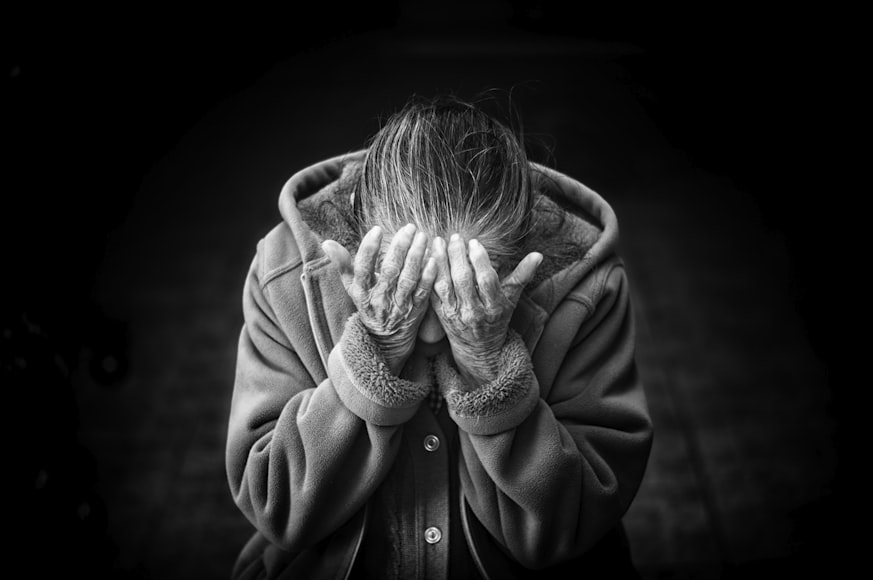Bereavement and Grief – Losing a loved one is never simple to accept or deal with. Even when death puts an end to suffering, the grief and sorrow might still be too much to bear. As the grieving process takes shape, these feelings of despair and melancholy may confuse. You can progress through this frequently complicated healing process by being aware of how grief functions, its stages, and the distinction between bereavement and grief.
Bereavement and grief are not the same. Although they occasionally behave similarly or overlap, they are still two separate entities that require different approaches.
The following article will help you learn their definitions and three critical differences between bereavement and grief, how bereavement is a state while grief is an emotion, the differences between their cycle and stages, and how grief is an emotional reaction during bereavement.
What is bereavement?

Bereavement is a time frame during which people experience grief and mourning. After losing a loved one, a person goes through a period of despair known as bereavement.
Bereavement, grief, and mourning sometimes refer to the same thing.
Despite having a lot in common, they all mean something different. It is simpler to start working through your grief if you comprehend how these elements fit together to define the grieving process.
Examples of bereavement:
Death-related loss may not always result in bereavement. Other significant losses in your life may cause you to experience bereavement at those other times. Any kind of loss can have a long-lasting impact on your emotional and psychological health.
Examples of these include:
- Losing a spouse because of a divorce
- Your close friend is moving away and getting married
- Your pet running away
- Being dismissed from a job
- Your home catching fire
You’ll probably feel the same grief as if you’d lost a loved one when you experience these other forms of loss.
What is grief?

Grief is defined as a normal response to loss. It is frequently experienced as an intense emotional reaction to loss that manifests as sadness or sorrow. Grief can strike you after any loss. Like bereavement, you will experience grief over more than just the loss of human life.
When a loved one passes away or when he experiences other significant losses in their life, a person experiences grief. This normal reaction is known as anticipatory grief. The process involves a wide range of emotions, behaviors, and expressions, all of which aid in helping a person accept the death of a loved one. Grief can also be defined as the emotions that arise after loss, such as rage, jealousy, and indifference.
An incomplete or delayed response to our loss results in complicated grief. To properly handle complicated grief, counseling from a minister, grief counselor, family doctor, or mental health professional may be necessary.
Examples of grief:
Different people deal with grief in different ways. Everyone is affected differently by it. Your pain level will differ from others’ depending on factors including your experiences, emotional and psychological health, cultural beliefs, and connection to the deceased or attachment to the loss. Even if they have experienced the same kind of losses, no two people will grieve similarly.
For example;
- Death of a good friend
- Loss of a spouse
- Death of a classmate or coworker
- Serious illness of a loved one
- Relationship breakup
- Loss of a family member
3 key differences between bereavement and grief
Usually, people believe that bereavement and grief are the same things. It might be challenging to differentiate between someone suffering from bereavement and someone grieving when you don’t completely grasp what the phrases signify. Here are the 3 key differences between them.
1. Bereavement is a state while grief is an emotion

One of the most significant differences between bereavement and grief is that bereavement is a state while grief is an emotion.
The term “bereavement” refers to the state of the feeling of having lost a loved one. It most frequently refers to the period immediately following a loss, when emotions are the strongest.
A person who has recently learned that a loved one has passed away will experience grief over the loss. They can lose control of their sobbing, strike out in a fury, or be in shock after learning the news. All of them are examples of emotional reactions to such loss. These responses are tied to grief.
An individual may experience grief for several weeks or years. They might not be able to perform their job duties and request a brief period of bereavement leave. Their pain does not end after their bereavement leave ends, and they go back to work. It simply implies that they have used up all of the paid time off that their employer was required to provide.
When the initial stage of pain and grieving is over, bereavement is over. The bereavement state will eventually come to an end as the person’s emotional state changes.
2. Cycles vs stages
Because bereavement and grief are intertwined, it can be challenging to distinguish between bereavement and grief. The best approach is to recognize that bereavement occurs in cycles of time. A bereaved person will go through those stages as they deal with their loss, but they will also go through mood, emotion, and feeling changes as part of the bereavement cycle.
A person experiencing grief will go through many emotional stages as they figure out how to deal with their loss. A person who is grieving is supposed to go through five specific stages of grief that is also known by The Kübler Ross’ 5 Stages of Grief.
- Denial and isolation
- Anger
- Bargaining
- Depression
- Acceptance
There is no set sequence that everyone follows, and not everyone goes through each stage. The stages of grief can all be said to lead to a healthy resolution of sadness, nevertheless.
3. Grief is an emotional reaction during bereavement

Understanding the distinction between bereavement and grief can be a bit challenging at this point. When viewed from a different perspective, it is simpler to comprehend the differences between bereavement and grief.
Grief is the outward manifestation of your initial emotional reactions when losing a loved one. Shock, bewilderment, wrath, bargaining, and acceptance are normal grieving reactions. When discussing the grieving process and “moving through” your sadness, they are also what is meant when referring to the five stages of grief.
Bereavement starts the moment you experience the loss. Although you might not feel sad right after receiving the news, you would have already entered a period of bereavement.
You will go through stages of bereavement that are closely related to those emotional reactions. Bereavement is something you experience, and grief is something you work through.
Also Read: 7 Factors Affecting How Long Your Divorce Will Take
Wrapping up
Bereavement and grief are frequently used interchangeably, and occasionally even professionals mix the two. The most crucial thing to remember while dealing with bereavement and grief is that although bereavement refers to the period immediately following the death of a loved one or the experience of another form of significant loss, grief refers to your emotional reactions.
Are you dealing with bereavement or grief due to any loss and need help to make you go through this & move forward? Schedule a free discovery call with me. As a coach and counselor, I’d help you feel easier and move forward in your life.










![2024 Awareness Wordbook by Vivien Roggero [Self-discovery tools]](http://vivienroggero.com/wp-content/uploads/2023/04/Book-Awarness-Full-pack.png)